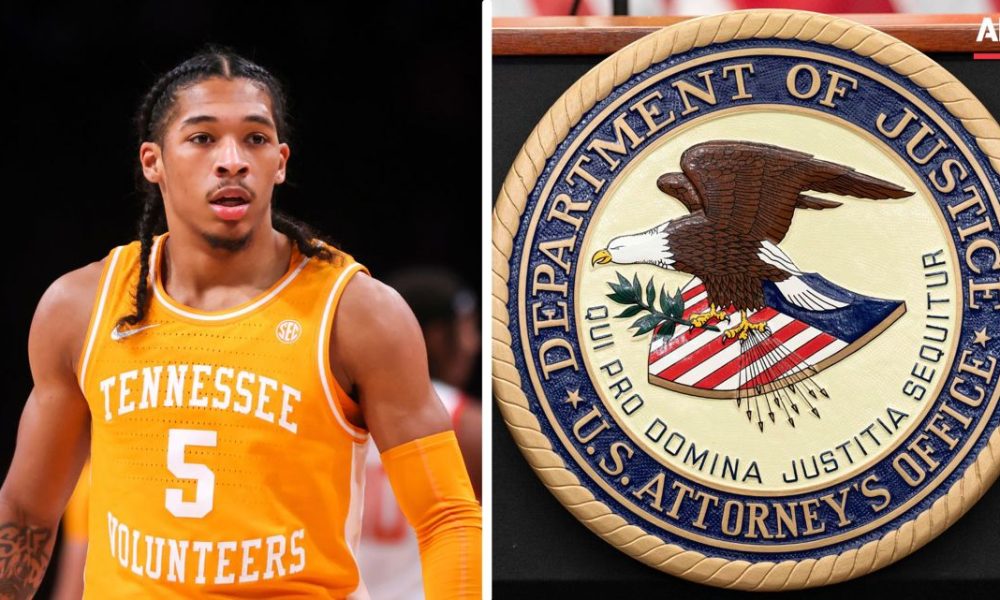NIL
DOJ weighs in on NCAA eligibility lawsuit
The Department of Justice evaluated a lawsuit by Zakai Zeigler challenging the NCAA’s limit on extra-year eligibility. KNOXVILLE, Tenn. — The United States Department of Justice is weighing in on a lawsuit filed by former University of Tennessee basketball player Zakai Zeigler, who is challenging the NCAA to play for an additional year while collecting […]

The Department of Justice evaluated a lawsuit by Zakai Zeigler challenging the NCAA’s limit on extra-year eligibility.
KNOXVILLE, Tenn. — The United States Department of Justice is weighing in on a lawsuit filed by former University of Tennessee basketball player Zakai Zeigler, who is challenging the NCAA to play for an additional year while collecting compensation for his name, image and likeness.
Zeigler, who recently graduated from an undergraduate program, said in the lawsuit that he plans to pursue a graduate program at UT. He is the latest in a list of college athletes filing lawsuits against the NCAA, saying he hopes to compete in his fifth year of college basketball, arguing that he has a five-year eligibility window, despite already graduating from UT’s undergraduate program.
The lawsuit argues that an “arbitrary” National Collegiate Athletic Association rule limits student-athletes to participating in four seasons of competition. It also claims the NCAA’s rule violates the Sherman Act, constituting an “unreasonable restraint of trade” because when student-athletes’ eligibility ends, they are effectively locked out of the NIL market.
The lawsuit argues that many other student-athletes compete during their fifth year of eligibility and earn compensation for their name, image and likeness while playing. The lawsuit said Zeigler’s NIL valuation for the 2025-2026 season ranges between $2 million and $4 million.
In a document filed Monday, the DOJ’s Antitrust Division submitted a Statement of Interest, stating how the Sherman Act should be applied in this case. While the federal government is not siding with either party, they are urging the court to use a rule of reason approach to determine whether the NCAA’s eligibility rule harms or helps competition in the student-athlete labor market.
The National Collegiate Athletic Association responded to the lawsuit Monday and argued that eligibility rules are non-commercial in nature and fall outside the scope of the Sherman Act.
The DOJ also noted that while some NCAA rules might have some benefits, they should be judged on their impact. The Justice Department emphasized that restrictions that limit their ability to compete or earn NIL income could be “anticompetitive,” and that the court shouldn’t assume NCAA rules are legal or illegal but examine the facts.
A hearing on that request is scheduled for June 6 in the U.S. District Court for the Eastern District of Tennessee.